Professional bodies are an influential feature of any paraplanners careers, whether we’re members of the Chartered Institute for Securities and Investment (CISI), Personal Finance Society (PFS), or pay for LIBF courses.
So we fork out for fees, collect our CPD, and maybe sit an exam or two. But are we really getting the most from these organisations?
What do they offer that can support us in our careers? And is one more suited to me than another? Or are all three much the same?
That’s what this Assembly was all about. We invited Chris Morris from CISI, Nicola Mellor from the PFS, and Sally Plant from LIBF to field questions posed in advance and in the chat by paraplanners.
Note: Because technology didn’t work the way it’s supposed to, Sally wasn’t able to join us on screen BUT she did join us in the Chat while her colleague (and director of financial services at the LIBF) John Somerville, was able to join Richard, Chris and Nicola on screen (from about 15 minutes in).
It’s a great conversation from start to finish and comprehensively explored:
- What specific support does each body offer paraplanners – and what makes the difference between them
- How can paraplanners influence the work of the organisations and how to get involved
- Whether there’s a place for paraplanner-specific qualifications
- How does membership work, what are the costs involved, and why do you need to maintain a membership (for PFS and CISI)
Plus plenty more.
What can you expect to take away?
Once you’ve listened or watched, you’ll have a much clearer understanding of what each professional body offers, which could be the right one for you, and how you can get more value from your membership.
Look out for another installment in 2026
There was so much to talk about that we didn’t manage to address even 50% of the questions that paraplanners had submitted so we’ll be setting up a second session featuring Chris, Nicola and – hopefully – Sally early in 2026.
If you want to know what’s on the minds of other paraplanners, then this is definitely the Assembly for you.
That’s because Scottish Widows’s Craig Spittal joined host, Richard Allum, and guests Alison Neale of Principle Paraplanning, to exclusively reveal key findings of this year’s Scottish Widows‘ Paraplanner Survey ahead of it’s formal publication in November 2025.
Since recording the results have been published and you’ll find them here.
Original insights on the big issues
During this recording of a lunch-hour online Assembly, Craig shares findings from a sample of 200 paraplanners who completed the third annual survey of paraplanners. Topics covered include:
- Job satisfaction – Do your paraplanning peers feel supported in their current role? And how eager are they to gain greater recognition and influence, and clarity over possible career paths? How high is confidence in the profession overall – and is it the same for everyone at every age?
- Platforms and due diligence – How many platforms do paraplanners use day to day? And what are the issues that grind paraplanners gears? Tune in to hear Alison, Craig and Richard’s thoughts.
- AI and tech – Is the desire for automation matched by tech adoption in paraplanners firms? Or are things moving far slower than the hype suggests? What – if anything – is holding paraplanners back from AI adoption? And how convinced is the community by the promise of AI? Does the carrot of greater efficiency dilute concerns about accuracy and data security?
What can you expect to take away?
Listen and you’ll hear practical insights, honest reflections, and a clear idea of where paraplanners like you think our profession is heading.
So tuck in to a helping of hot-of-the-press original research and take this chance to reflect on the attitudes and trends that are influencing paraplanning today.
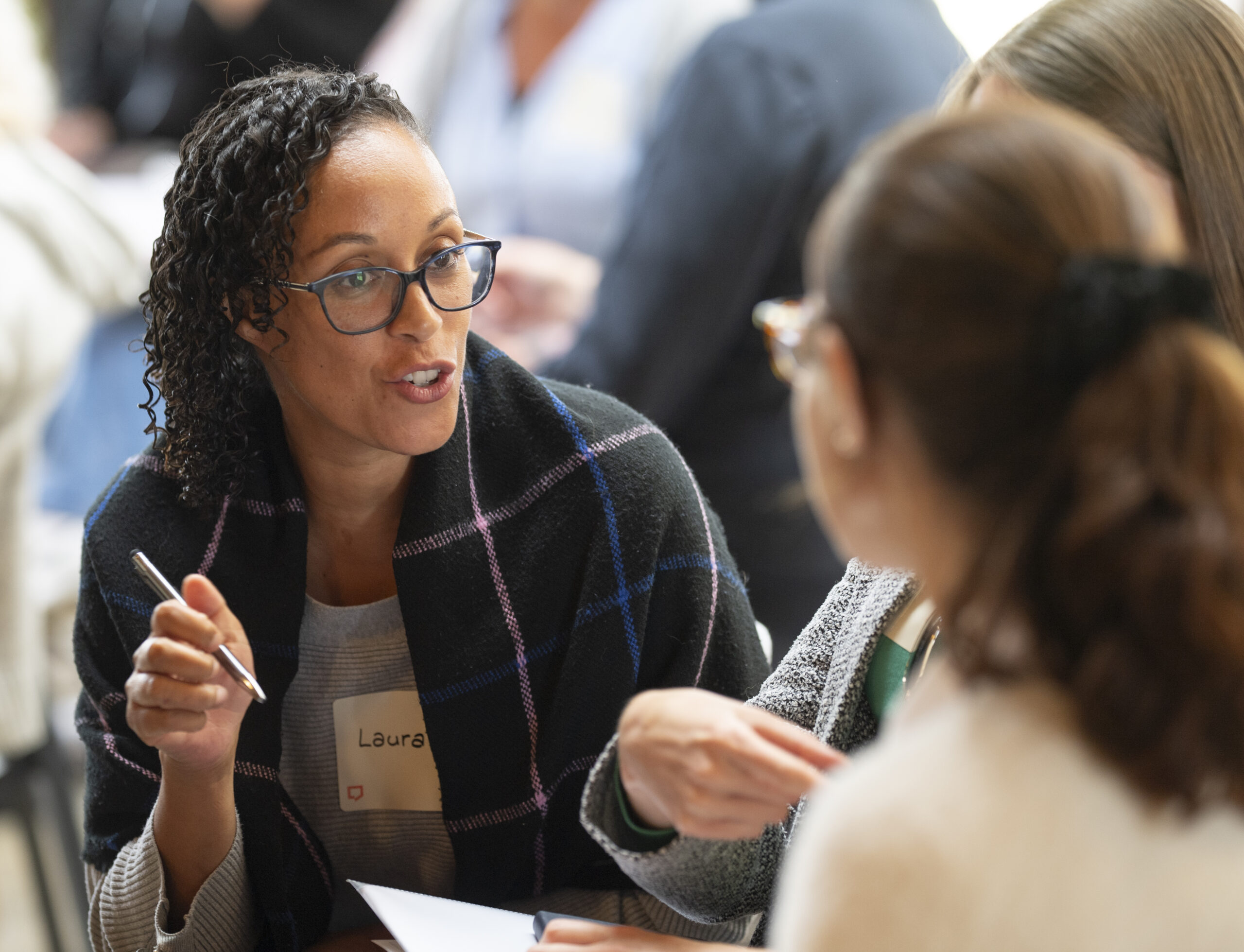
Stop wondering if you’re doing the right things to grow your business: A power-up for outsourced paraplanners
Here’s a question that might keep you awake at night: how do you know whether what you’re doing to promote your outsourced paraplanning business is actually working? Or perhaps more fundamentally – where on earth do you even start?
If you’re nodding along, you’re definitely not alone. Whether you’re a new business needing to generate leads and build awareness, or you’ve been established for a while but want to grow and increase enquiries, the challenge is the same: cutting through the noise and actually getting noticed.
The good news? You don’t need an MBA in marketing or a hefty advertising budget to make meaningful progress. Just book your ticket to join us and your fellow paraplanners at this business power-up, Marketing that actually works (for outsourced paraplanners).
A full day focused entirely on practical marketing for outsourced paraplanners
Join us at Aegon’s London offices on Friday 14 November for a day designed specifically for outsourced paraplanners who want to take control of their marketing – without the jargon, without the overwhelm, and definitely without walking away with more questions than answers.
We’ve partnered with New Tradition, marketing and brand experts who specialise in making the complex simple, to deliver a hands-on workshop that cuts straight to what actually matters for your business.Plus, we’re delighted that Dr Tom Mathar from Aegon will be joining us to share his insights on achieving better success from referrals – because we all know that word-of-mouth remains a powerful tools in your arsenal.
What makes this day different?
This isn’t about theory or abstract concepts. You’ll spend the day building your own marketing plan using practical tools that you can take away and continue using long after the event ends.
We’ll focus on four fundamental areas that every successful outsourced paraplanning business needs to get right:
- Who you’re trying to reach – getting crystal clear on your target audience
- What you’re offering – defining your proposition in ways that actually resonate
- How you stand out – finding your point of differentiation and what you stand for
- Getting noticed – practical strategies for building relationships and visibility
Who should attend?
This day is designed for outsourced paraplanners at any stage of their business journey:
- New businesses who need to generate leads and build awareness from scratch
- Established practices looking to grow their client base and increase enquiries
- Anyone who’s ever wondered whether they’re focusing their marketing efforts in the right areas
What will you take away?
By the end of the day, you’ll have:
- Your own marketing blueprint – a practical plan specific to your business that you can implement immediately
- Reusable frameworks and tools – so you can continue refining your approach
- Confidence that you’re doing the right things – no more second-guessing your marketing efforts
- Actionable strategies for referrals – thanks to Dr Tom’s expertise
- Fresh perspectives and ideas – from working alongside other outsourced paraplanners
- New connections – with people who understand your challenges and can offer ongoing support
- A completed workbook – everything you need to keep moving forward
Most importantly, you’ll leave with the reassurance that comes from having a clear plan and the tools to execute it.
Agenda
Morning session
- Welcome and introductions
- Setting the foundation: understanding your current position
- Workshop 1: Defining your target audience
- Workshop 2: Clarifying your proposition
Afternoon session
- Workshop 3: Identifying your differentiation
- Workshop 4: Getting noticed and building relationships
- Dr Tom Mather (Aegon): Achieving better success from referrals
- Pulling it all together: your marketing blueprint
- Action planning and next steps
Ready to take control of your marketing?
If you’re tired of wondering whether you’re doing the right things to promote your business, and you want to walk away with a clear plan and the tools to implement it, this day is for you.
Places are limited to ensure everyone gets the individual attention they need to build their own marketing plan.
Book your place now.

Whether you’re just starting out in paraplanning or looking to make your next move, having a clear career plan makes all the difference. But how do you actually build one that works?
That’s what this Assembly is all about: the practicalities of creating a plan for your career; an approach that you can use no matter what stage you’re at in your professional life.
Your career roadmap in just one lunch hour
Caroline Stuart, owner and founder of Sparrow Paraplanning, hosted the conversation which featured four brilliant guests: Ellie Welling paraplanning team leader at Succession Wealth, Joe Jacob, paraplanner at FLP, Peter Spence, advice and paraplanning team leader at Fintuity, and Sarah Purves, learning and development expert at Aegon.
Together, they explored a practical framework for career planning that goes beyond wishful thinking to create actionable next steps.
What can you expect when you watch and listen?
During this Assembly we:
- Explored your career aspirations and help you define what type of role you actually want
- Identified the constraints and opportunities that will shape your path (including your non-negotiables)
- Considered objectives to move you forward
- Provided a template to help you build out your personal career action plan
- Learned from our guests’ experience of starting out and developing as paraplanners
What you will take away
You’ll leave with a practical framework that you can use immediately to plan your next career step – plus real-world insights from paraplanners who’ve successfully navigated their own career transitions at different stages.
Most importantly, you’ll have a clear action plan rather than just good intentions. So if you’ve been thinking about where you go next in your paraplanning career, this session is the perfect place to turn those ideas into practical actions.
A big ‘thank you’ to Aegon
This Assembly would not be possible without the generous support of Aegon. Thank you to the team at Aegon for supporting and for backing the development of paraplanners and paraplanning in the UK through their support of the Paraplanners’ Assembly.
Catch up on the series
This Assembly was the last in a four-part series that’s all about breaking into paraplanning and, once you have, developing as a paraplanner. You’ll find all the details you need by following these links:
- Breaking into paraplanning: ‘Where do I even start?’
- Breaking into paraplanning: ‘Who should I work for?’
- Developing as a paraplanner: ‘Where could I go from here?’
You’ve established yourself as a paraplanner, but now you’re thinking: ‘What next?’
For many paraplanners, staying in paraplanning is exactly what they want to do. But what does career development look like within the profession? How have people built on their paraplanning skills and experience? And what about those considering a move into other areas like financial planning or specialising in research or operations?
This Assembly, recorded on 3 September explored some of the career routes within and from paraplanning.
Our host Caroline Stuart, owner and founder of Sparrow Paraplanning, is joined by Ellie Bailey, paraplanning team leader at Succession Wealth, Farida Hassanali, client manager at Paradigm Norton, Rebecca Tuck, operations director at FLP Financial Life Planning and Sian Greenhill, operations executive and centralised investment and product committee at Brooks Financial – all sharing their perspectives on career progression and specialisation.
Over the course of the Assembly, they discuss:
- Some of the career development options for paraplanners
- The practical steps our panel took to progress in their careers
- Lessons learnt along the way
- Tips for planning your next career move
You’ll leave this Assembly with your head full of good ideas for potential career development and a bucket load of insights from people who’ve successfully made these transitions and you can claim one hour’s CPD.
Catch up on previous Assemblies in this series
This continues our series on paraplanning career development. Don’t miss our previous sessions exploring how to break into paraplanning and choosing the right place to work for your early paraplanning career.
Thanks to Aegon
This Assembly would not be possible without the generous support of Aegon. Thank you to the team at Aegon for supporting and for backing the development of paraplanners and paraplanning in the UK through their support of the Paraplanners’ Assembly.
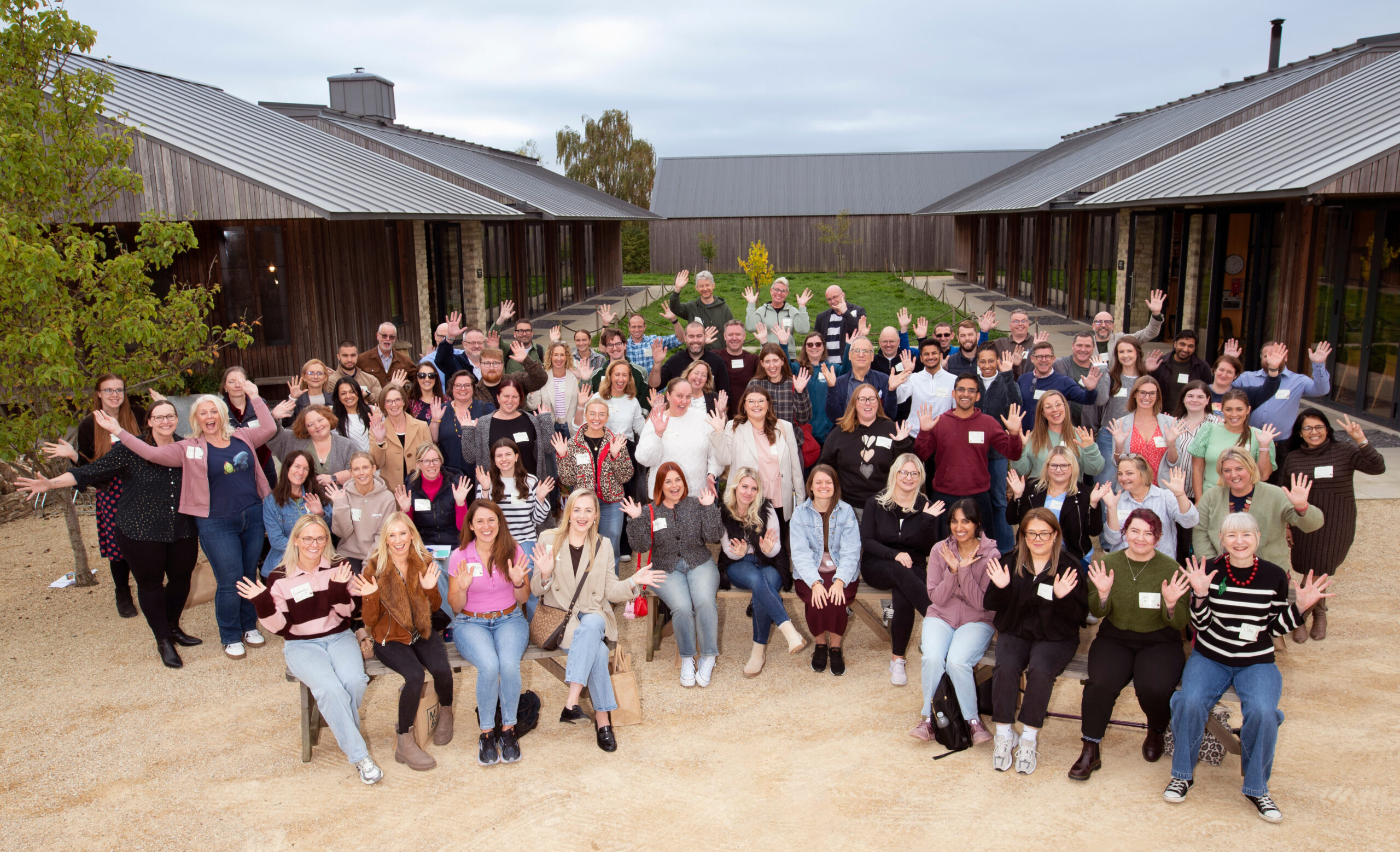
Paraplanners from all over the country gathered on Thursday 9 October 2025 at FarmED in rolling Cotswold countryside – the last time the Big Day Out was being at the venue.
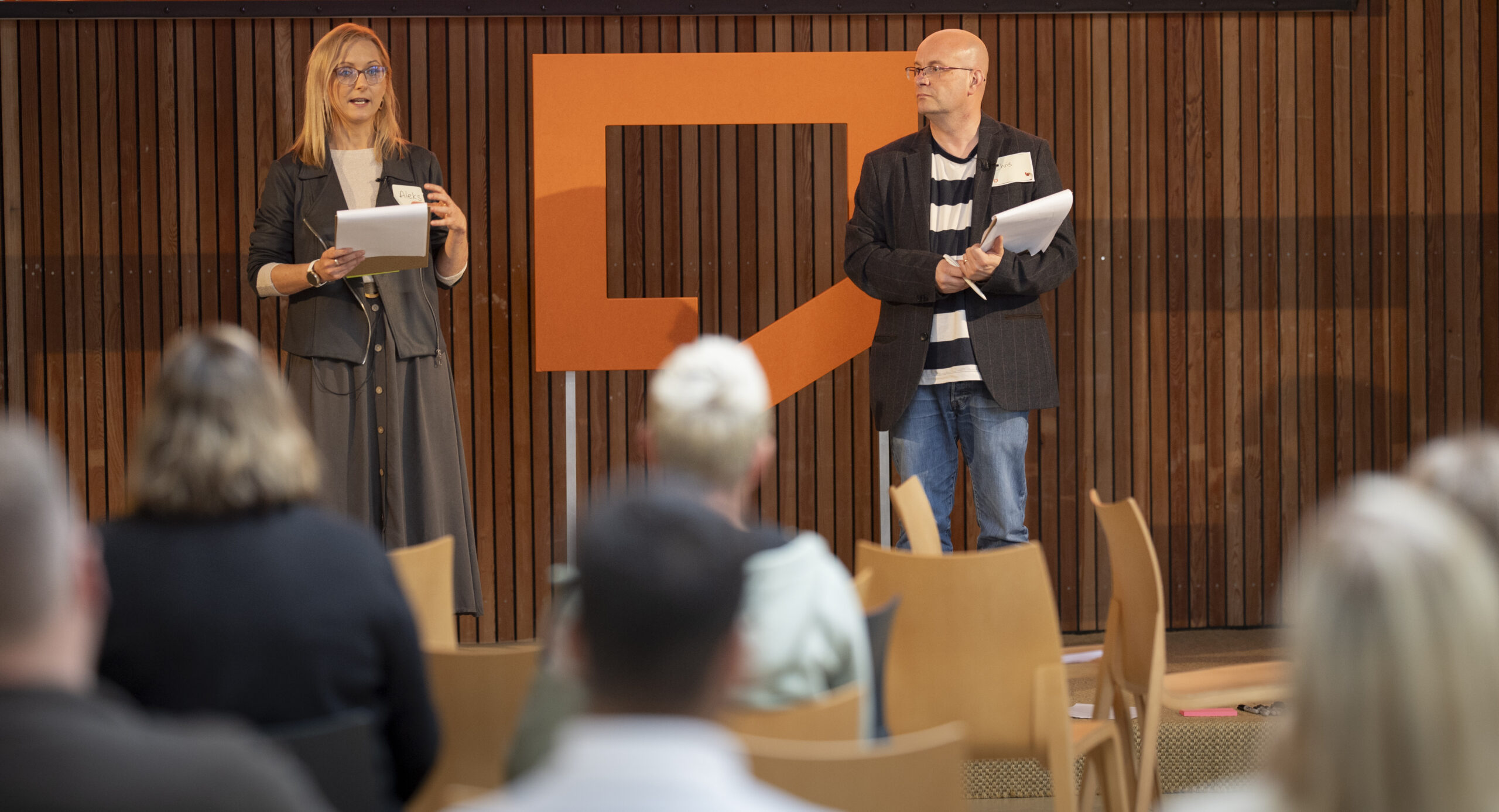
An introduction to AI for Paraplanners
Participants were welcomed by The Big Day Out hosts, Aleks Sasin and Chris Wormwell, before Harriet Meyer kicked the day off with An introduction to AI for paraplanners.
What were the big takeaway messages from the session?
Used properly, large language models (LLMs) like ChatGPT, Claude, Copilot and Gemini can be powerful tools to aid the writing process that sits at the heart of your role. From client communications to suitability reports, the quality of your written work directly impacts client outcomes and regulatory compliance.
In this highly interactive session, award-winning financial journalist and AI trainer Harriet, cut through the AI hype using hands-on exercises where participants could practice effective prompt design and see real examples of how AI can improve client communications, streamline report writing, and support documentation tasks.
Whether you had never used AI tools, experimented with basic applications, or were already incorporating AI into your workflow but want to improve your technique, Harriet’s session offered lots of opportunities to learn together with paraplanning peers.
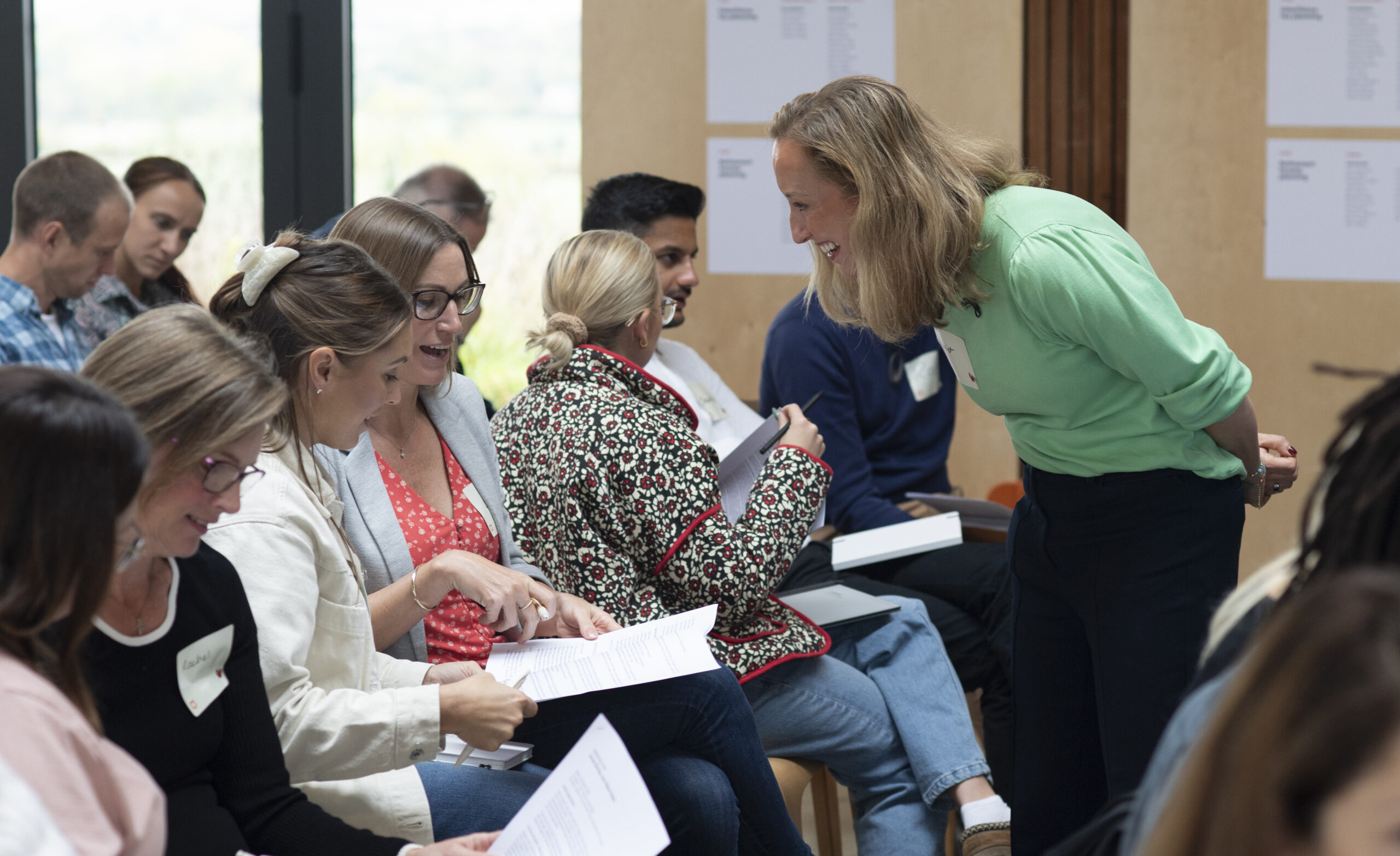
Technical pick-and-mix sessions
Ahead of the Big Day Out, participants were invited to pick two hour-long technical and financial planning client scenario sessions (from a choice of four). The topics were:
IHT Planning: Foundation
This session focused on helping participants strengthen foundational understanding of inheritance tax planning, and offer a structured refresher on core principles.
Through an interactive scenario-based discussion, they worked through client situations and explored different approaches, understanding the practical application of IHT planning principles and the trade-offs involved in different strategies. We explored the essential framework of “spend it, gift it, or insure it” and how these principles apply in practice. Issues covered included residence nil rate bands, tapering rules, and gifting allowances, alongside practical solutions like life cover. Participants also touched on the importance of Wills and Powers of Attorney, and even some discussion of deed variations.
IHT Planning: Advanced
This session tackled more complex planning scenarios involving multiple strategies and significant assets. Participants considered the complexities of advanced planning strategies, examining real-world trade-offs and the practical challenges of implementing sophisticated solutions, including the order of gifting, trust planning, and business relief considerations. With pensions now in the IHT net from 2027, the session explored how pension planning intersects with inheritance tax strategy. The session also examined when and how to use different planning tools, and the consequences of getting the sequencing wrong.
Retirement Income Planning: Foundation
If you wanted to strengthen your understanding of retirement income options and, particularly, building confidence around annuity recommendations, this was the session for you. Participants gained a comprehensive grounding in the core retirement income options available to clients with the session covering the fundamentals of drawdown versus annuities, tax-free cash decisions, securing essential income, and how State Pension fits into the picture.
Retirement Income Planning: Advanced
If you are comfortable with retirement income products but wanted to enhance your skills in creating comprehensive, client-focused retirement strategies that meet FCA expectations, then this was the session for you.
Participants explored sophisticated techniques for capturing client requirements, categorising needs into essential, desired, and legacy funds, and creating robust cash flow models. Groups discussed tax wrapper strategies, sequencing risk, and how to build retirement plans that will withstand regulatory scrutiny while truly serving client needs.
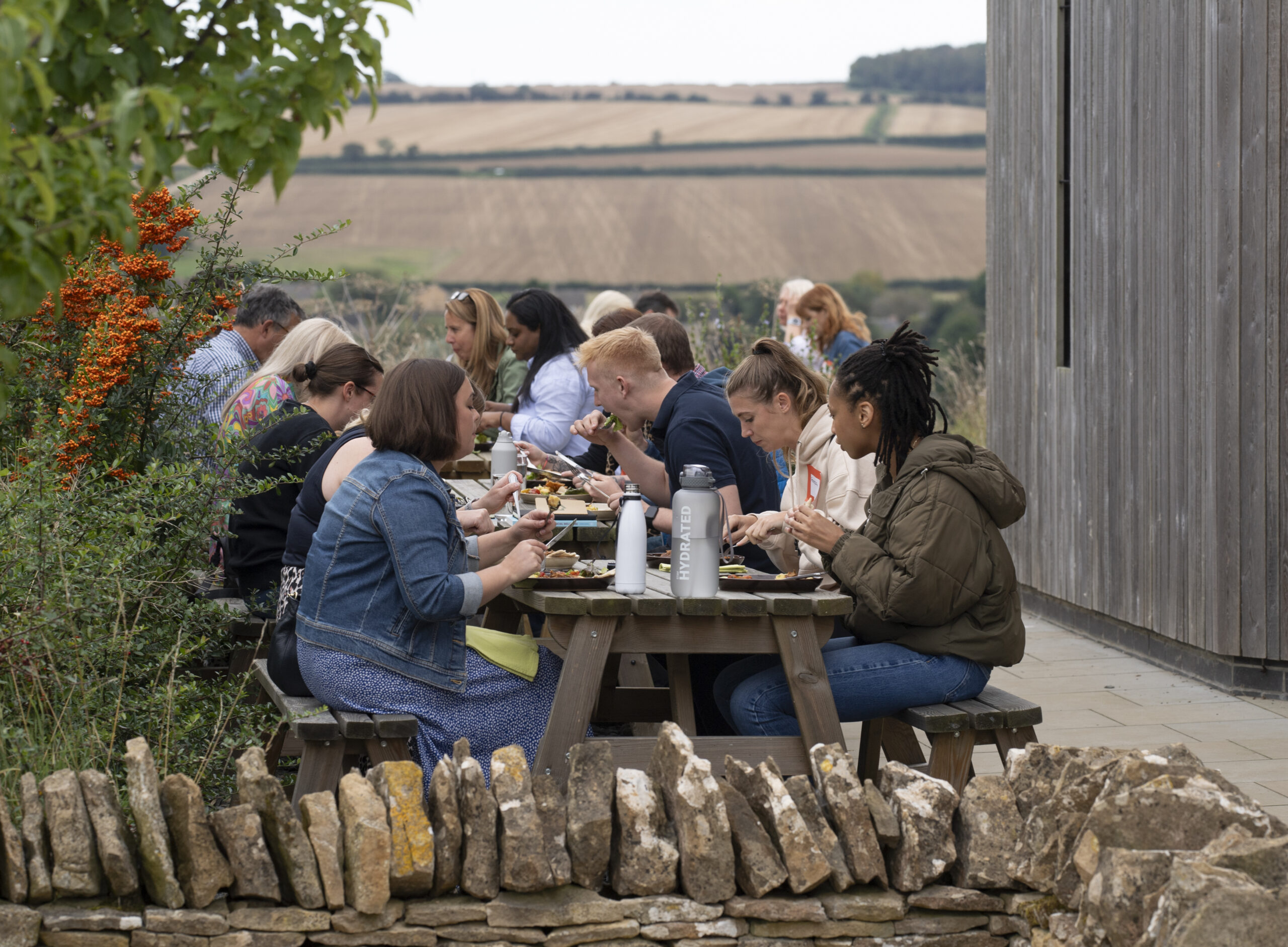
Your career, your choice: Designing your professional future
Paraplanner Zara Okoro invited participants to explore what really drives you professionally, where your strengths lie, and how to turn sector changes into career opportunities. Using a framework, Zara asked the Assembly to break out into groups of four and work through a series of questions which participants could use as lenese to explore where they are in their career today, and what they want to do next.
Whether you were early in your career or well-established, this session worked for anyone ready to take ownership of their professional development.
The ideal session for heading home knowing where to focus your efforts and how your future career growth could benefit both you and your employer.
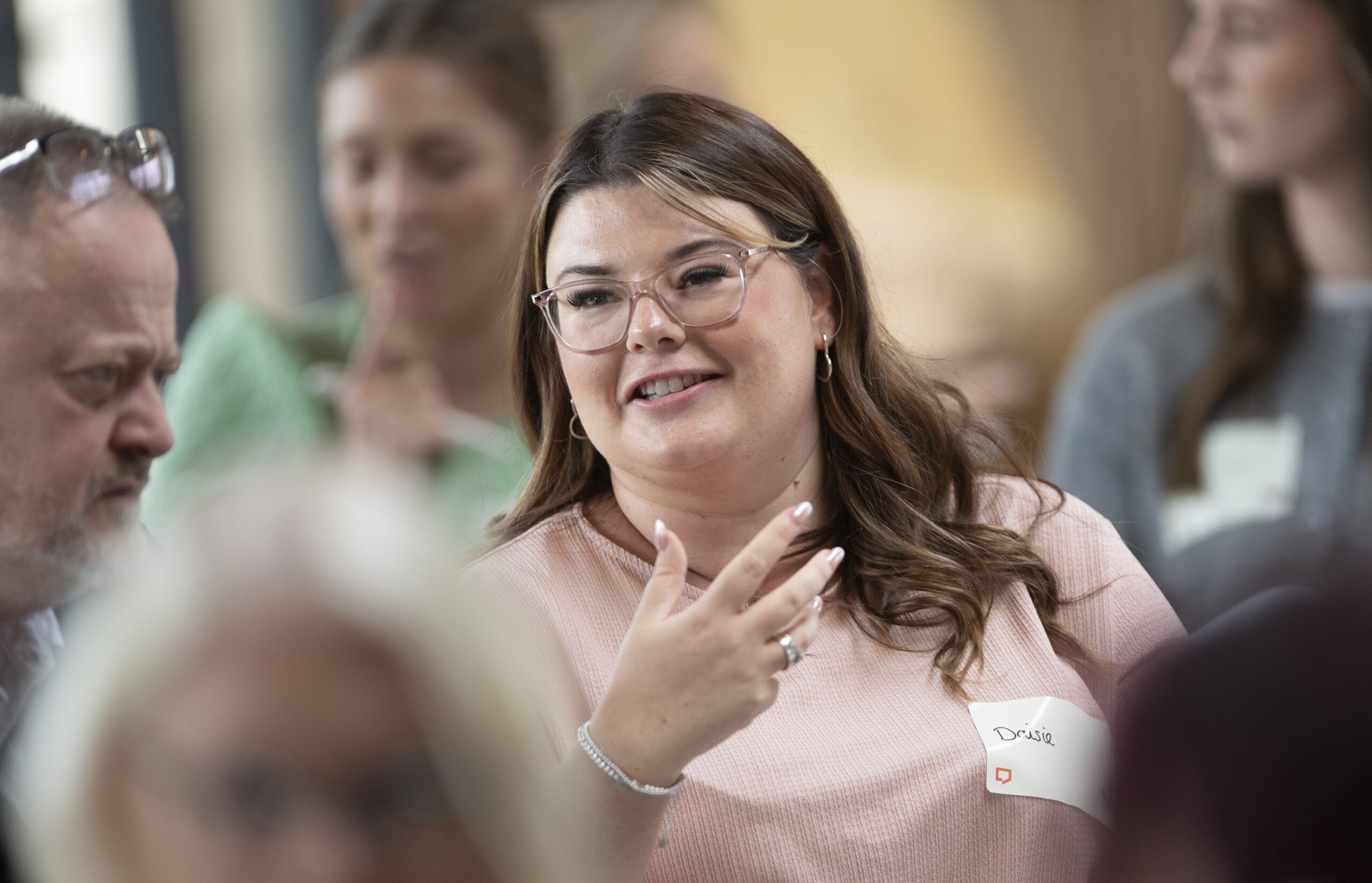
The Assembly
Led by Big Day Out hosts Aleks Sasin and Chris Wormwell, and observing the Chatham House Rule, this open session handed the floor over to participants. Whether you wanted to dig deeper into topics covered earlier, raise something completely new, or simply pick the brains of the experts and fellow paraplanners in the room – it was entirely up to participants.
paraplanners and we also welcome administrators, so if you are not one please don’t book a ticket. If you’re still really interested in coming along then get in touch with us at [email protected].
Whether you’re considering a move into paraplanning, just landed your first role or are just curious about the options, one question you might keep wondering about: ‘What kind of organisation should I work for?’
Do you choose in-house team or outsourced provider? A small boutique practice or large corporate? Whichever you choose, there will be pros and cons, so how do you decide which is most suitable for you?
This Assembly – recorded on 6 August 2025 – lifts the lid on different paraplanning career paths and workplace structures. It’s the second in a series of Assemblies looking at careers in paraplanning and supported by Aegon.
Our host Caroline Stuart of Sparrow Paraplanning is joined by Julie South, owner of Bee Paraplanning, Sarah Lees, senior paraplanner at Forvis Mazars and Jo Parkes, paraplanning manager at Navigatus – paraplanners with experience of working in all kinds of organisations and are ready to share what it’s meant for their careers.
Over the course of the Assembly, they discuss:
- The different paraplanning structures out there – and what they’re really like to work in
- How to get your foot in the door – and what to look for in potential employers
- What support and development you can expect from types of organisations
- Practical tips for adapting and thriving wherever you land
You’ll leave with a clearer picture of your paraplanning options, practical insights from experienced practitioners, and the confidence to take your next career step.
Don’t forget your CPD
Once you’ve listened to this Assembly, you can request a certificate for 1 hours CPD. Just follow the link below.
Don’t miss the first Assembly in this series
This is the second Assembly in a series on breaking into and developing your career in paraplanning. Discover the first in the series Breaking into paraplanning: where do I even start?.
Thanks to Aegon
This Assembly would not be possible without the generous support of Aegon. Thank you to the team at Aegon for supporting and for backing the development of paraplanners and paraplanning in the UK through their support of the Paraplanners’ Assembly.
What knowledge, experience and skills will help you get hired? And, once you are hired, how will you know you’ve actually made the right choice?
Whether you want to get into paraplanning, are just starting out, or know someone who would love to get their break, this online Assembly – recorded on 9 July 2025 – is jam-packed with insights on making your move into paraplanning.
Hear for yourself how our guests took their unique paths into paraplanning
Host Caroline Stuart is joined by paraplanning guests Chris Wormwell, Ceetal Katechia and Kez Condy, plus personal development expert Sarah Purves of Aegon.
Over the course of one podcast, you’ll discover how each of our paraplanners took very different routes into the profession.
One is a former barista who swapped one daily grind for another kind altogether. Then there’s the university marketer who yearned to change career. Finally, there’s the ex-administrator who set their heart on changing lanes into paraplanning.
Among the topics covered are
- The multiple pathways into paraplanning (because there’s never a ‘right’ route is there?)
- Tried and tested strategies for overcoming obstacles when starting out (or just started)
- Building a career plan that works for you
- Creating your support network
- Tackling imposter syndrome head-on
- Vital conversations to have with current or potential employers
Let’s be honest, how many of us can claim that we had our careers sussed out from day one? So don’t miss this fantastic chance to listen, learn and take your first step into paraplanning.
Don’t forget your CPD
Once you’ve listened to this Assembly, you can request a certificate for 1½ hours CPD. Just follow the link below.
Thank you Aegon
This online Assembly would not be possible without the generous support of Aegon. Thank you to the team at Aegon for supporting this Assembly – and for backing the development of paraplanners and paraplanning in the UK through their support of the Paraplanners’ Assembly.
When it comes to the idea of innovation are you more likely to radiate Ted Lasso energy rather than Roy Kent? More Bandit than Bluey? Or put another way (that doesn’t rely on eclectic TV viewing habits): does the prospect of change make you feel more ‘Yeah!’ than ‘Meh!’?
The reason we ask is that we were inspired by paraplanner Zara Okoro’s recent thought-provoking article in Professional Paraplanner all about innovation. So we invited Zara from Abacus Associates, who’s also a PFS Paraplanner Panel member, to share her thoughts on how paraplanners can adapt rather than risk getting left behind.
Alongside Zara, we were joined by PSA Financial Services’ head of paraplanning, Ceetal Katechia, to join in the conversation. Ceetal has bags of practical experience in creating team environments in which new ideas flourish.
Together with host Richard Allum, this Assembly asked what innovation actually looks like, whether it’s always a good thing, what fuels it, and how can you influence it when you’re not the decision-maker?
It’s an Assembly that’s all about how you can embrace innovation and shape our profession rather than be subject to changes happening around you.
What can you expect when you listen?
You’ll come away with practical ideas to try out, whether you’re looking to improve your processes and workflow, make better use of existing tools and tech, or create space for bigger changes in your work.
Most of all, this is a chance to step back from day-to-day demands and take a few moments for yourself to think about how even small changes can shape your role and influence the direction of your career in paraplanning.

Thank you for joining us on 15 November to take your outsourcing game to the next level.
Thanks to the generous support of Assembly supporter, Aegon UK, we were able to team up with coach and consultant Rachael Hurdman to create a workshop where paraplanners could gather to exchange practical insights, knowledge and experience.
We hope you agree it turned out to be a day out of the office that made a real difference to you and your future in outsourcing.

